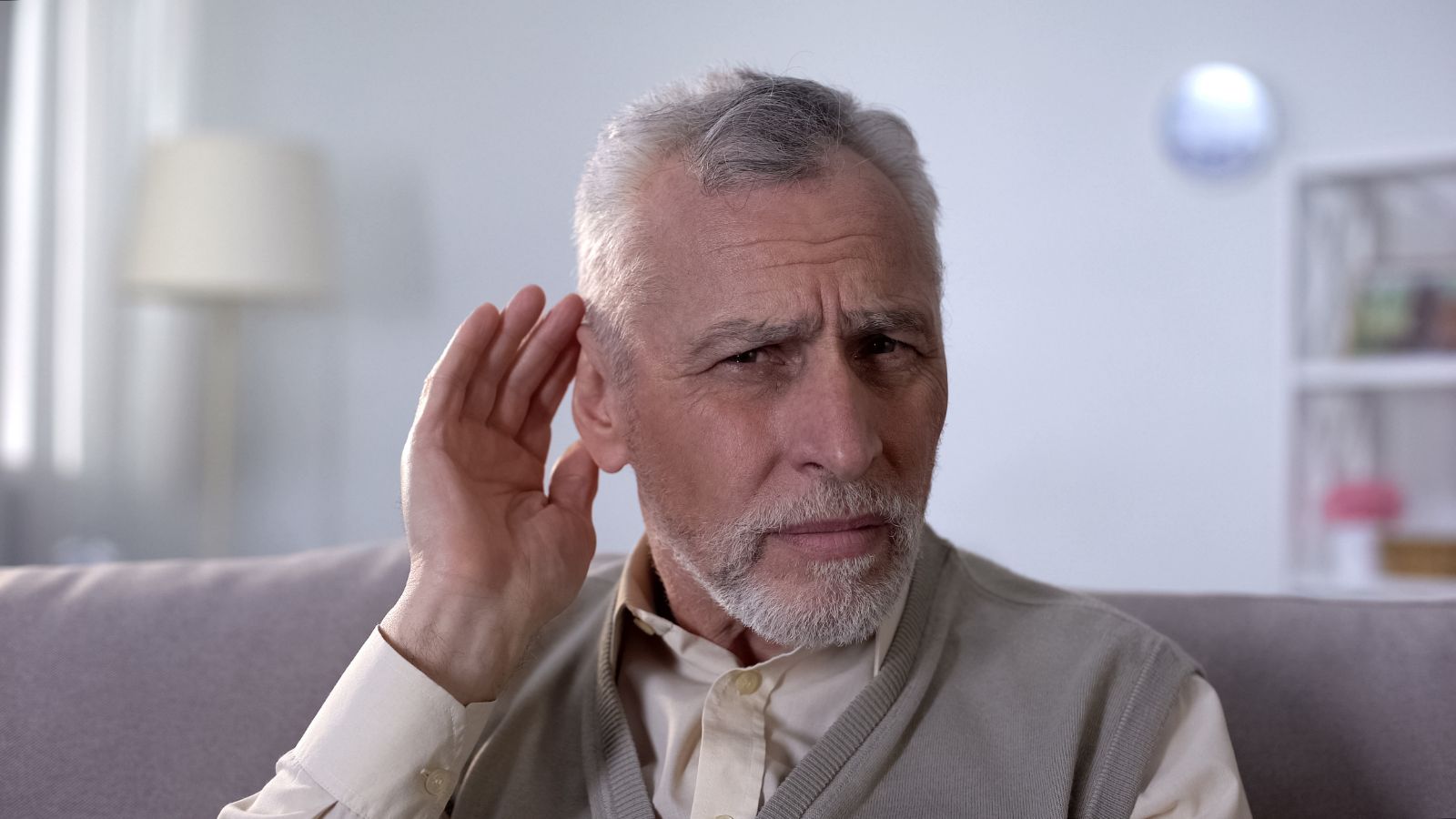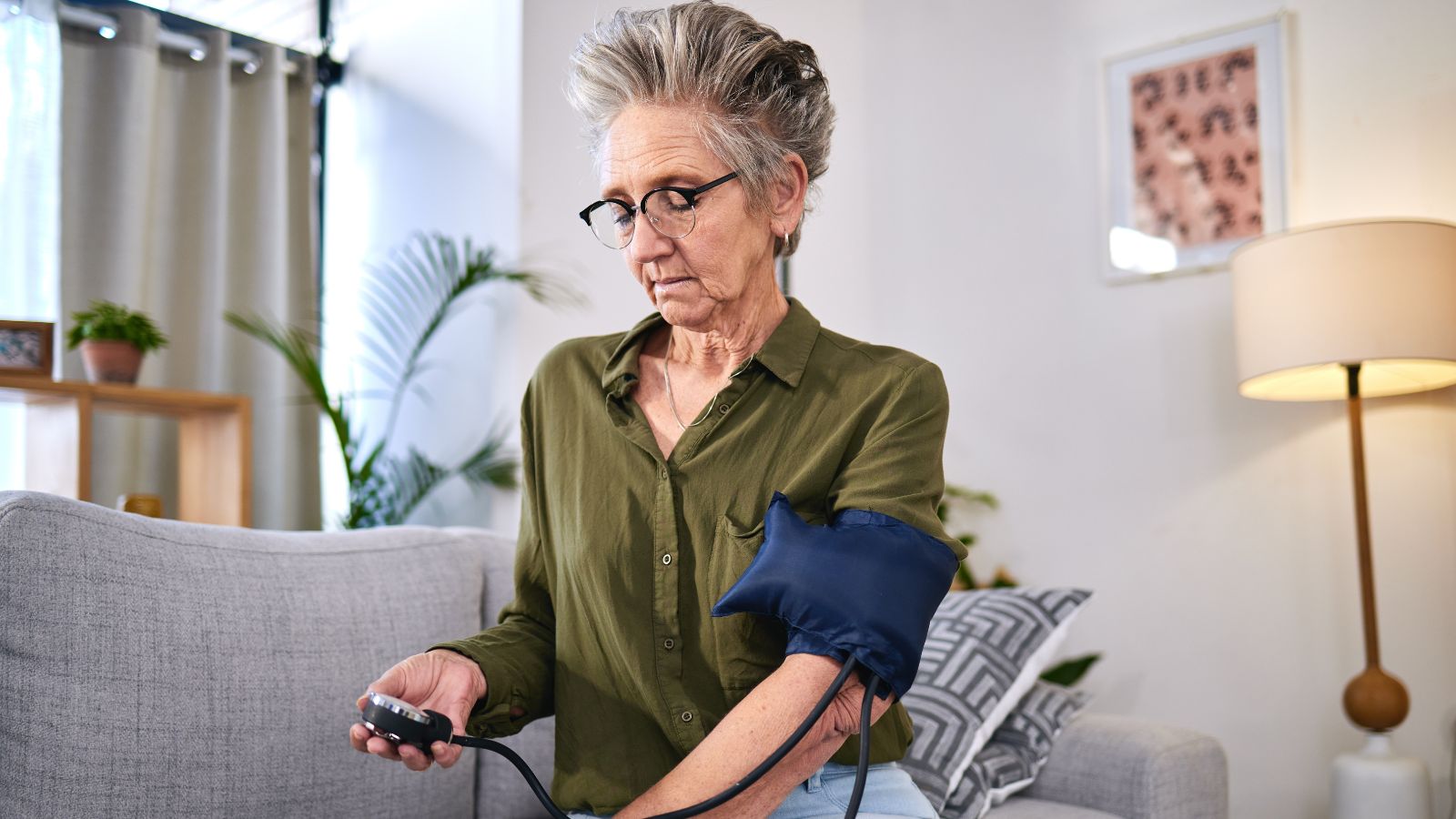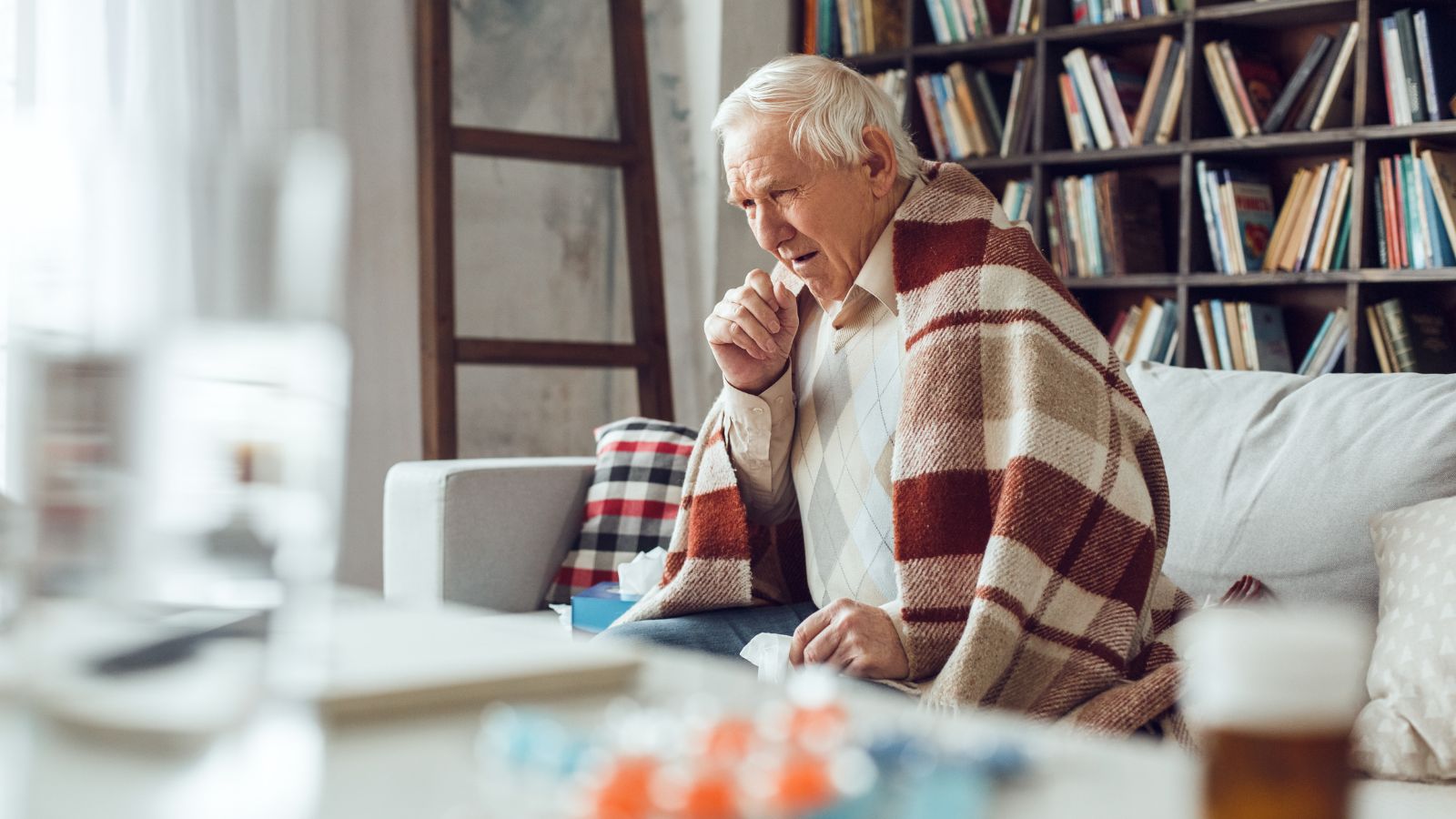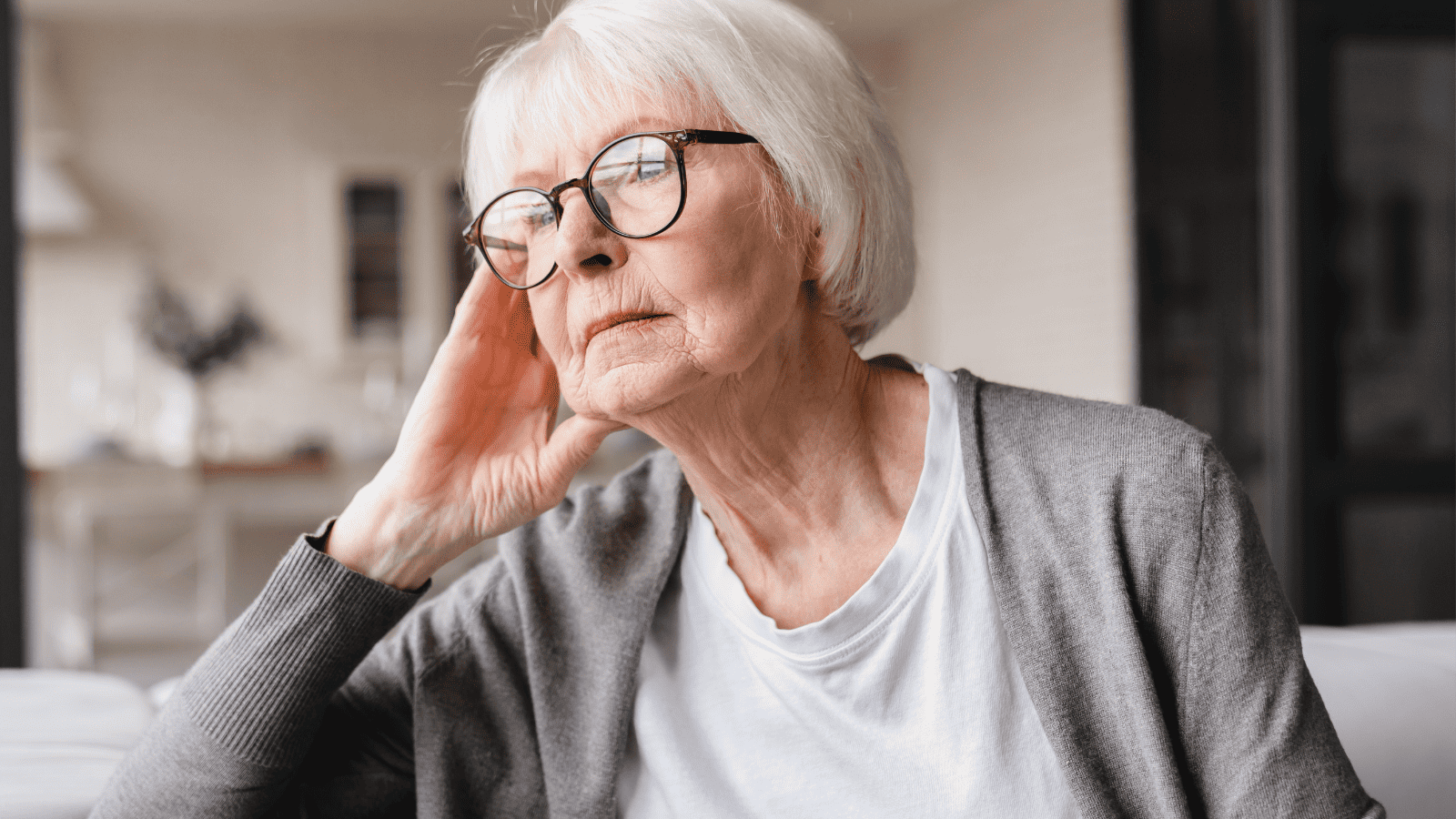With age, unfortunately, come changes to your health, many of which are sadly negative. As you enter your 60s, it’s important to be aware of what steps you can take to manage these changes. From skin issues to heart disease, this article covers 17 ways your health could decline and how to address these problems.
Cognitive Decline

As you get older, your mental agility may start to slow down, and your memory might not be as sharp as it once was. You should, of course, have regular check-ups with your doctor, especially if there are any noticeable cognitive issues. Otherwise, you can try to prevent cognitive decline by engaging in mental exercises and maintaining social interactions.
Vision and Hearing Loss

Another unfortunate way your health can decline in your 60s is increased difficulty with your vision and hearing, including sensitivity to light and trouble hearing high frequencies. If this is happening to you, make sure you’re having frequent check-ups, using corrective devices, and protecting your eyes and ears from harsh environments where possible.
Dental Health Issues

According to the NIH, “Periodontal disease, dental caries, tooth loss, xerostomia and oral precancerous and cancerous conditions are common oral health problems in older adults.” The best way to prevent or deal with these issues is daily brushing and flossing, along with regular dental check-ups.
Skin Changes

Skin changes in your 60s and 70s can be worrying. The skin can become thinner, less elastic, and more prone to bruising. If this is happening to you, start by moisturizing regularly and protecting your skin from excessive sun exposure. If there are significant changes or new growths, however, then you need to visit a doctor.
Osteoporosis

Unfortunately, bones become weaker and more susceptible to fractures as we get older, especially from our 60s and onwards. The best way to deal with this is by following a calcium-rich diet with lots of vitamin D and exercising regularly. If you have a fall or are experiencing any sudden pain, though, a doctor’s appointment is needed.
Diabetes

There’s an increased risk of diabetes due to age, possibly compounded by lifestyle factors such as poor or irregular eating. Your doctor will best be able to advise you; however, a balanced diet, regular physical activity, and monitoring of your blood sugar levels can make this condition manageable.
Influenza and Pneumonia

“For older adults aged 65 years and over, both influenza and pneumonia are diseases with serious consequences,” as per the CDC. With age comes a higher risk of potentially more severe complications. Annual flu shots and pneumonia vaccinations are recommended as preventative measures.
Increased Risk of Falls

As you likely know, there’s also an increased risk of falls in your 60s as your balance and muscle strength decline. You can deal with this by carrying out home safety assessments, wearing appropriate footwear when possible, and getting physical therapy if you feel it’s needed.
Obesity

Unfortunately for the foodies among us, our metabolism slows as we get older, increasing the risk of weight gain. Naturally, the best way to prevent or manage this is by following a balanced diet and doing regular exercise. If you experience sudden weight gain or associated health issues, however, then pay a visit to your doctor.
Heart Disease

Your health may also decline in your 60s with the onset of heart disease, which often occurs due to age-related changes in the heart and blood vessels. A healthy diet, physical activity, and managing your blood pressure and cholesterol are the best ways to stay on top of this.
Arthritis

This unfortunately “occurs as a result of regular use of your joints over time,” according to Lifespan. Your joints may become stiff and painful with this condition. A doctor will best be able to advise you on how to manage this condition, but as a preventive measure, regular exercise will keep your joints flexible and strong.
Chronic Kidney Disease

Another unfortunate way your health can decline in your 60s is kidney disease, which can happen as your kidney function slows down with age. Regular check-ups, maintaining a healthy weight, and controlling your blood pressure are the best ways to deal with this, but symptoms such as swelling, fatigue, or changes in urine require a doctor’s visit.
Chronic Respiratory Diseases

As you enter your 60s and beyond, you may also have an increased vulnerability to diseases like chronic obstructive pulmonary disease (COPD). To try to prevent this, you can avoid smoking and pollutants, but if you’re already suffering from breathing difficulties, a chronic cough, or other persisting respiratory symptoms, then you need professional treatment.
Liver Function Changes

Your liver may not be able to process toxins as efficiently as you get older, making it important to actively monitor your liver health. To maintain liver function, limit your alcohol intake, eat a balanced diet, and try to avoid excessive weight gain. Regular liver function tests can also help detect any changes early.
Depression and Mental Health Issues

It’s not just physical health issues that can affect you in your 60s. The CDC shares that “older adults are at an increased risk for experiencing depression.” This can be due to isolation, a decline in physical health, or the loss of loved ones. You can attempt to manage this by seeing a professional counselor, ensuring you get regular social interaction, and possibly taking medication.
Urinary Incontinence

It’s not uncommon for the pelvic floor muscles to weaken with age, and changes in the urinary tract can also be expected. To best deal with this, you can try pelvic floor exercises, make sure you’re always properly hydrated, and make any dietary modifications your doctor suggests.
Gastrointestinal Changes

Another health issue you may face in your 60s is that your digestive system can slow down, leading to issues like constipation and heartburn. If you want to maintain gastrointestinal health, we recommend you eat a fiber-rich diet, stay hydrated, and exercise regularly. Probiotics can also support your digestive health!
Read More: 17 Things Society Can No Longer Do Because Gen Z Said So

Gen Z, our digital-native, trendsetting generation, is making waves in the cultural sea, steering the ship of societal norms in fresh and unexpected directions. As they charter new territories, there are certain practices they’d rather we say goodbye to. Curious? Let’s take a look at 17 things the rest of us can no longer do because Gen Z said so.
17 Things Society Can No Longer Do Because Gen Z Said So
19 Big Mistakes People Make After Losing a Spouse

Losing a spouse is one of life’s most tragic experiences, and when we’re overwhelmed by grief, we might make some decisions that we’ll later regret. Here are 19 mistakes people make after losing their spouse.
19 Big Mistakes People Make After Losing a Spouse
20 Time-Honored Practices Our Grandparents Followed That We Should Bring Back

Our grandparents had a far simpler life. There was no such thing as social media. Instead, there was more walking and meals were always fresh and homemade. With so many things keeping us busy nowadays, sometimes life would seem much easier if we lived the way our grandparents did.
20 Time-Honored Practices Our Grandparents Followed That We Should Bring Back
